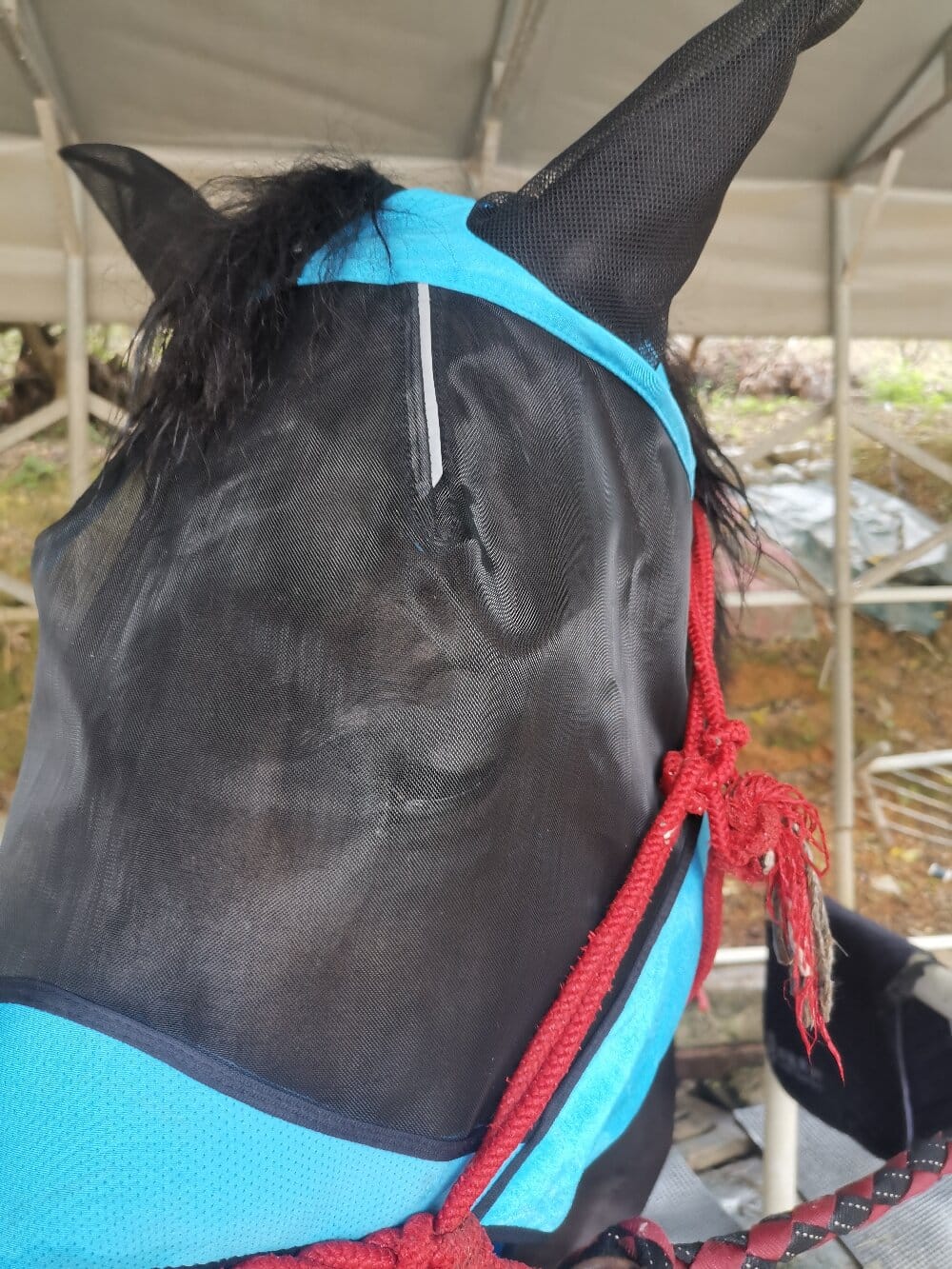A horse fly mask is an essential piece of equine gear, especially during the warmer months when insects are at their most aggressive. These protective coverings shield your horse’s eyes, ears, and face from irritating flies, mosquitoes, and harmful UV rays. Beyond comfort, a well-fitted fly mask can prevent infections, reduce stress, and improve your horse’s overall well-being. Whether you own a competition horse or a pasture companion, investing in a quality fly mask is a decision you won’t regret.
The Benefits of Using a Horse Fly Mask
Fly masks offer more than just basic protection—they provide multiple advantages that enhance your horse’s quality of life. Here’s why experts recommend them:
- Eye Protection: Flies can carry bacteria that lead to conjunctivitis and other infections. A fly mask acts as a barrier.
- UV Defense: Many masks include UV protection to prevent sunburn, particularly for horses with light-colored faces.
- Reduced Stress: Constant swatting at flies can make horses anxious. A mask helps keep them calm and focused.
- Prevents Scratches & Injuries: Horses rubbing their faces against fences or trees to relieve irritation can cause wounds.
Choosing the Right Fly Mask for Your Horse
Not all fly masks are created equal. The best choice depends on your horse’s needs, environment, and activity level. Here’s what to consider:
- Material: Look for breathable, lightweight fabrics like mesh to prevent overheating.
- Fit: A snug but comfortable fit ensures the mask stays in place without rubbing.
- Coverage: Some masks cover only the eyes, while others extend to the ears and muzzle.
- Durability: Reinforced stitching and tear-resistant fabric extend the mask’s lifespan.
Expert Tips for Maintaining Your Horse’s Fly Mask
To maximize the effectiveness and longevity of your horse fly mask, follow these expert-recommended care practices:
- Regular Cleaning: Rinse or wash the mask weekly to remove dirt and sweat buildup.
- Inspect for Damage: Check for tears or loose straps that could cause discomfort.
- Rotate Masks: Having a spare allows one to dry while the other is in use.
- Proper Storage: Keep masks in a dry, shaded area to prevent material degradation.
Common Misconceptions About Fly Masks
Despite their benefits, some horse owners hesitate to use fly masks due to myths. Let’s debunk a few:
- “They obstruct vision.” High-quality masks are designed with fine mesh that doesn’t impair sight.
- “Horses hate wearing them.” Most adjust quickly, especially if introduced gradually.
- “Only necessary in summer.” In warmer climates, flies can be a year-round nuisance.
Final Thoughts on Fly Mask Essentials
A horse fly mask is a small investment with significant returns in comfort and health. Whether your horse spends its days grazing in the field or training for events, protection from pests and UV exposure is non-negotiable. By selecting the right mask and maintaining it properly, you’ll ensure your equine partner stays happy, healthy, and irritation-free all season long.

